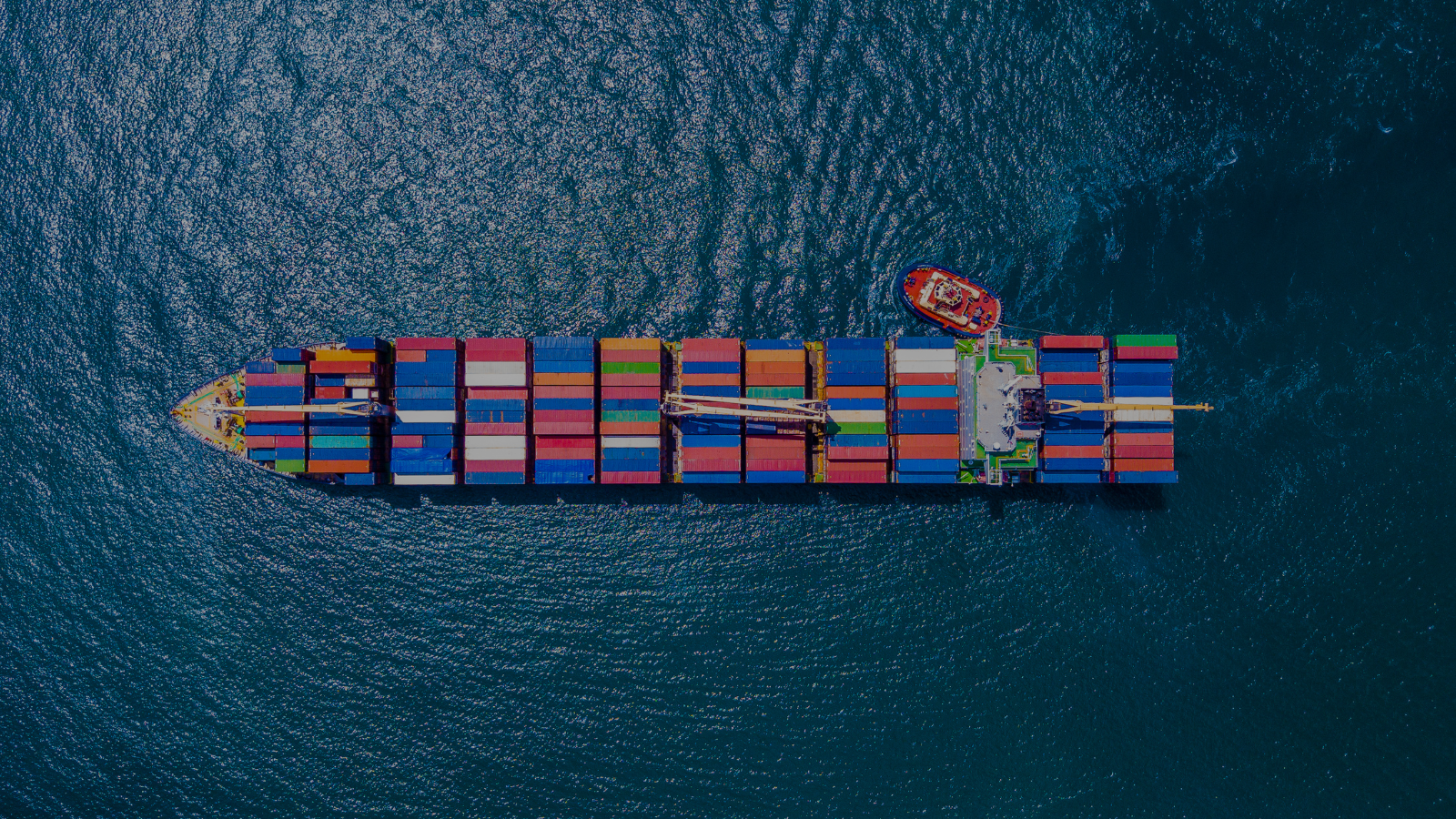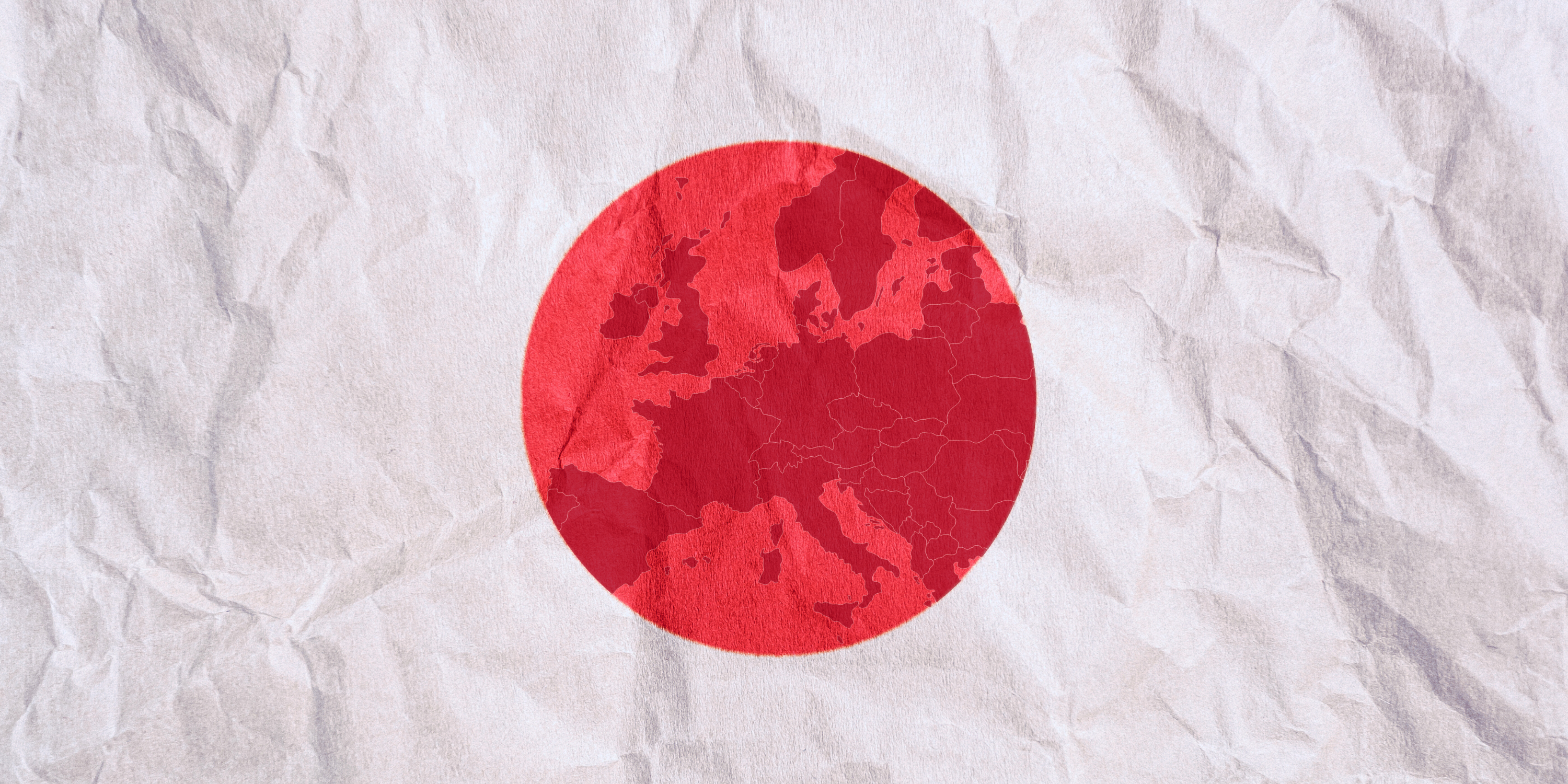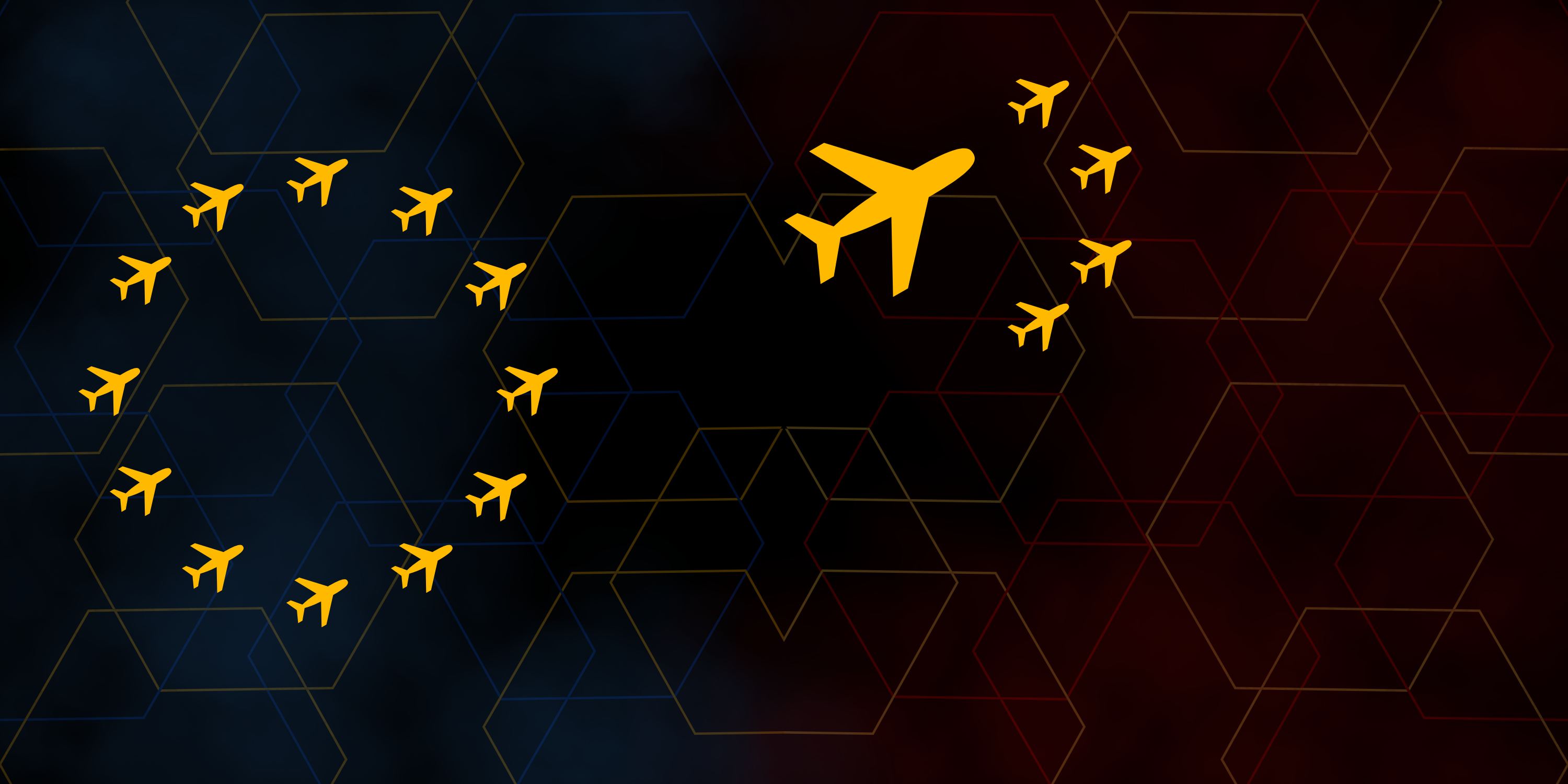Since late 2023, the Houthi attacks on Red Sea commercial shipping have led to growing concerns about the global spillover effects of the tense geopolitical situation in the Middle East. With around 15% of global trade passing through the Red Sea, the region is particularly important to global maritime interconnectivity. The decisions of major shipping companies to take the longer and costlier route around Africa instead of the Suez Canal led to rising commodity prices in many countries. China, the world’s largest export economy with significant trade ties with Europe, is highly interested in the safety of shipping routes through the Red Sea. Meanwhile, geopolitical considerations trump economic interests in China’s state media when discussing the Red Sea conflict. The “root cause” of the Red Sea conflict, as often argued in Chinese state media, is the Israeli-Palestinian conflict and the US’ inadequate response to it. The anti-Houthi operations of the US and allies thus only “add fuel to the fire”, according to the common narrative.
Being one of the world’s most important maritime trade routes, the safety of shipping through the Red Sea and the adjacent Gulf of Aden matters to China. This was proved in the late 2000s when China actively participated in anti-piracy operations against Somalian pirates attacking commercial shipping in the Gulf of Aden. For more than a decade, as part of the Belt & Road Initiative-related cultural diplomacy, the Chinese government has been promoting the importance of maritime interconnectivity and the safety of trading routes as top priorities of its foreign policy agenda. The famous 15th-century admiral Zheng He, whose fleet once travelled the Red Sea, has often been promoted as a figure to symbolize China’s historic commitment to maritime interconnectivity. The major disruption of free commercial shipping across the Red Sea caused by the attacks of the Yemeni-based Houthi insurgents put China to the test whether it is willing to uphold such proclaimed values. Based on the reactions of state officials and state media, it looks like geopolitical considerations are more important for the Chinese government than values-based and economic considerations.
Unlike the Somalian pirates of the late 2000s, who hardly had any support from important international actors, the Houthis of Yemen are widely seen as operating in a sort of “strategic partnership” with Iran. While some experts argue against using the word “proxy” to describe the Houthis’ relationship with Iran, it is clear that the two sides share the same anti-US geopolitical agenda. The situation, from the Chinese state media’s point of view, is thus not too much different from the case of narrating Russia’s invasion of Ukraine. Despite decades-long insistence on the primacy of national sovereignty, China’s state media essentially presented Moscow-friendly narratives since the invasion began in February 2022, highlighting the US’ responsibility for the outbreak of the war. In the case of the current Red Sea conflict, the controversial actions of actors with similar geopolitical aspirations also seem to receive less scrutiny in Chinese media. At the same time, much of the blame is put on China’s main geopolitical rival, the United States. In a broader sense, China’s state media also intends to cater to the public opinion in many Middle Eastern countries where sympathy for the Gazan population is widely shared, and US-skepticism is on the rise due to the Gaza conflict.
The “Root Cause” Narrative, with reference to Gaza
The January 30th statement of China’s foreign ministry spokesperson Wang Wenbin is frequently reproduced in the analyzed sources and provides the main guidelines of the discourse in state media. The first part of Wang Wenbin’s statement calls for the halting of attacks against civilian shipping, noting the importance of stability in the Red Sea, a vital global shipping route. The second part frames the Red Sea conflict as a spillover of the Gaza conflict and de-legitimizes the US-led intervention for not receiving the mandate of the UN Security Council to breach Yemen’s sovereignty.
Much of the analyzed sources elaborate on the talking point of the Gaza conflict being the “root cause” of the Red Sea conflict and point to the responsibility of the US and Western countries in not reaching a ceasefire in Gaza. While in English-language sources, the expression “root cause” is frequently used, in Chinese-language ones, the set expression biao ben jian zhi 标本兼治 (“treating both the symptoms and the root cause”) is preferred. This expression, borrowed from traditional Chinese medicine, implies that the Gaza conflict (the root cause) needs to be resolved first, and only this will lead to the resolution of the Red Sea conflict as well. What is notable is that Chinese state media usually treats the Houthis’ move to attack shipping in the Red Sea as self-evident based on Israel’s attack against Gaza. Despite being located ca. 2,000 kilometers away from Gaza and facing little direct hostility from Israel, the rationale behind the Houthis’ decision to start the attacks is not questioned anywhere.
In one Global Times article, Fudan-based Middle East expert Sun Degang argues that “the root of the Red Sea crisis lies in the Palestinian region”. Sun insists that without addressing the “root cause”, the military intervention in the Red Sea will likely be insufficient. Sun also criticizes the formation of “exclusive, small multilateral organizations with ‘high walls’” to resolve the crisis, most likely referring to the US-led military operation. Instead, Sun calls for a “collective effort to resolve the crisis” without further elaborating on what these efforts would look like. Another Global Times article is more direct about blaming the US’ Gaza policy, arguing that if the US would support a ceasefire in Gaza, the conflict in the Red Sea would be resolved without any military intervention.
China’s state media also intends to cater to public opinion in many Muslim-majority countries where concern about the suffering of Gazan civilians, as well as anti-Israeli and anti-US sentiments, are widespread. The English-language state-run television channel CGTN features several interviews with public figures from Muslim-majority countries. Their opinions on the Red Sea crisis mostly confirm the “root cause” theory promoted elsewhere in state media. In an interview with CGTN, Pakistani writer and former foreign policy advisor Mosharraf Zaidi argues that the Red Sea conflict is tied to the US’s support for Israel’s actions in Gaza. In Zaidi’s view, the US has a choice to either “continue to support Israel’s genocide in Gaza as it has done” or to choose “global trade lines, stability, security and predictability”. Zaidi notes that while China’s current influence over Middle Eastern affairs is limited in comparison to that of the US, many in the region will look to a more active role of China in regional affairs due to the “absence or […] a state of corrosion of the Western powers and their moral standing”. In another CGTN interview, Ebrahim Hashem, an Emirati strategist who frequently contributes to Chinese state media outlets, argues that the “root causes [of the Red Sea conflict] are not really located in Yemen. They are located in Gaza.”
In Chinese language articles, including ones published by Guangming Daily Online and Guancha, the set expression biao ben jian zhi 标本兼治 (“treating both the symptoms and the root cause”) also usually implies a more overarching critique of the US approach to Middle Eastern affairs. As often suggested, either explicitly or implicitly, while the US tries to address different conflicts separately (and mostly with military force), China has a more holistic and far-sighted approach that will supposedly bring more stability and prosperity to the region.
Middle East Policies of China vs. the US
Various articles take a further step to criticize the US’ Middle East approach overall and argue that China’s approach is more adequate in comparison. In this context, the Chinese-brokered Iranian-Saudi renormalization deal of March 2023 is often mentioned as a sign of China’s wisdom in handling regional affairs. Much in line with Xi Jinping’s “Global Initiatives” (of Development, Security, and Civilization) and his overarching vision of a “Community of Shared Destiny for Humankind”, such articles are characterized by a considerable amount of vagueness and “strategic ambiguity” on what a Chinese-dominated regional order would look like in the Middle East. Apart from listing the various aspects of failed US policy in the region, they rarely venture beyond general recommendations of more “dialogue” and avoiding “adding fuel to the fire”.
In an article originally published on Guangming Daily Online (光明网), the Middle East expert Sun Degang discusses the “three dimensions of managing the Red Sed crisis” (红海危机管控的三种维度). The article is mostly based on listing what are seen as failures of general US policies in the Middle East, suggesting that China’s approach is more suitable to uphold stability in the region. Apart from the “root cause” dimension (referring to Gaza), the author also criticizes the US for not engaging in dialogue with Iran-backed armed groups in the region (the “Axis of Resistance”) and for not supporting a broader international effort to resolve the crisis. The author also argues that the US can only use force to resolve conflicts in the Middle East, which proves to be insufficient to resolve major issues such as the Israeli-Palestinian issue. For this reason, the author deems Biden’s “values-based diplomacy” laughable (笑谈). In terms of concrete suggestions, the author mentions that China, Russia, and certain regional states proposed a zonal escort system to share the protection tasks of ships in the region (although no evidence can be found for this based on online searches).
An article published by Guancha (观察者网), which, according to the analysis of DoubleThink Lab, is a highly popular, partly privately-owned online news site with strong state links and mostly anti-Western, nationalist narratives, also discusses the issue. This article, based on the opinions of two China-based Middle East analysts, Li Shaoxian and Liu Zhongmin, is highly popular on WeChat regarding the number of readers. The article mainly criticizes the US and Western countries for treating the Gaza and Red Sea conflicts separately. In the article, Liu emphasizes that China seeks to “treat both the symptoms and the root cause of the conflict”, while the US and its allies want to handle the Red Sea conflict without addressing the Gaza conflict.
One widely shared news on Weibo is the report coming from Russia’s state-run TASS agency on the Houthis’ statement on letting Russian and Chinese ships pass freely through the Red Sea. This news apparently has helped to strengthen the view that China enjoys a distinct popularity in the region, especially compared to the US and its Western allies.
Refuting Reports that China Pressed Iran to Rein In the Houthis
An exclusive report published by Reuters on January 26, 2024, suggested that China put pressure on Iran to rein in the Houthis’ attack on international shipping. The report is based on anonymous interviews with Iranian and US sources (incl. four Iranian sources, among them government officials). The report also notes that senior US officials requested their Chinese counterparts to use their leverage over Tehran to persuade the Islamic Republic to rein in the Houthis. The report is frequently discussed and vehemently refuted in many of the analyzed articles. China’s state media seems to be upset about the notion that China has put pressure on Iran or any other actor in the region. Apparently, this would contradict China’s proclaimed brand of diplomatic conduct, which is based solely on dialogue instead of putting pressure on fellow governments, as also elaborated in Xi Jinping’s “Global Initiatives”. The various articles point out several reasons why the Reuters report is unlikely to be fact-based.
In the above-mentioned Guancha article, the Middle East analyst Li Shaoxian argues that Iran’s influence over the Houthis is overstated in Western media. In Li’s view, Iran’s influence over Hezbollah and the Shi’ite militias of Iraq and Syria is more significant than over the Houthi movement. Hence, Li also argues that the report on China putting pressure on Iran to influence the Houthis is unlikely to have any basis and also contradicts China’s approach to resolving conflicts via dialogue.
An article published by the Chinese-language online edition of Global Times (环球网) blames the US for spreading false rumors about China supposedly pressuring Iran to rein in the Houthi attacks. The article sets out by noting that the US armed operations in the Red Sea have no effect on resolving tensions in the region. The article criticizes the supposed ulterior motives of the US to request China to put pressure on Iran, which, in the authors’ view, is based on the US’ intention to spread the “China responsibility theory” (中国责任论). This latter concept is a wordplay with the more broadly used “China threat theory” (中国威胁论). The article concludes by praising China’s support for the political solution of armed conflicts and “win-win”-based joint development in the Middle East, which, in the authors’ views, will win more support than the divisive, military force-based approach of the US.
Highlighting Continental Routes to Replace the Red Sea Route
While most of the relevant sources on the Red Sea conflict take aim at the US for its responsibility and praise China’s distinct approach to Middle Eastern affairs, one article in China Daily focuses on the impact of the conflict on China-Europe freight train services. Without naming any source, the article claims that the “demand for China-Europe freight trains has increased by 100 percent since the outbreak of the Red Sea crisis.” This article suggests that in the case of a prolonged conflict in the Red Sea, the long-promoted continental links between China and Europe will probably gain a new kind of significance as an alternative route.
Conclusion
The discourse on the Red Sea conflict in China’s state media demonstrates the opportunistic and low-risk approach of the Chinese government to Middle Eastern conflicts in general. Beijing’s main objective in the region is to build “discourse power” (话语权) by catering to popular views in the region that are critical of Israel and the US in the context of the ongoing Gaza conflict. While relying on the US-led alliance to restore order in the Red Sea, China wants to avoid any reputational damage by being seen as directly supportive of any side in the ongoing conflicts. Based on Xi Jinping’s “Global Initiatives”, mostly made up of vaguely worded general wisdom about the importance of development, cooperation, dialogue, etc., China’s state media risks little while also proposing little in terms of actual solutions to the Red Sea conflict and other conflicts in the region.







